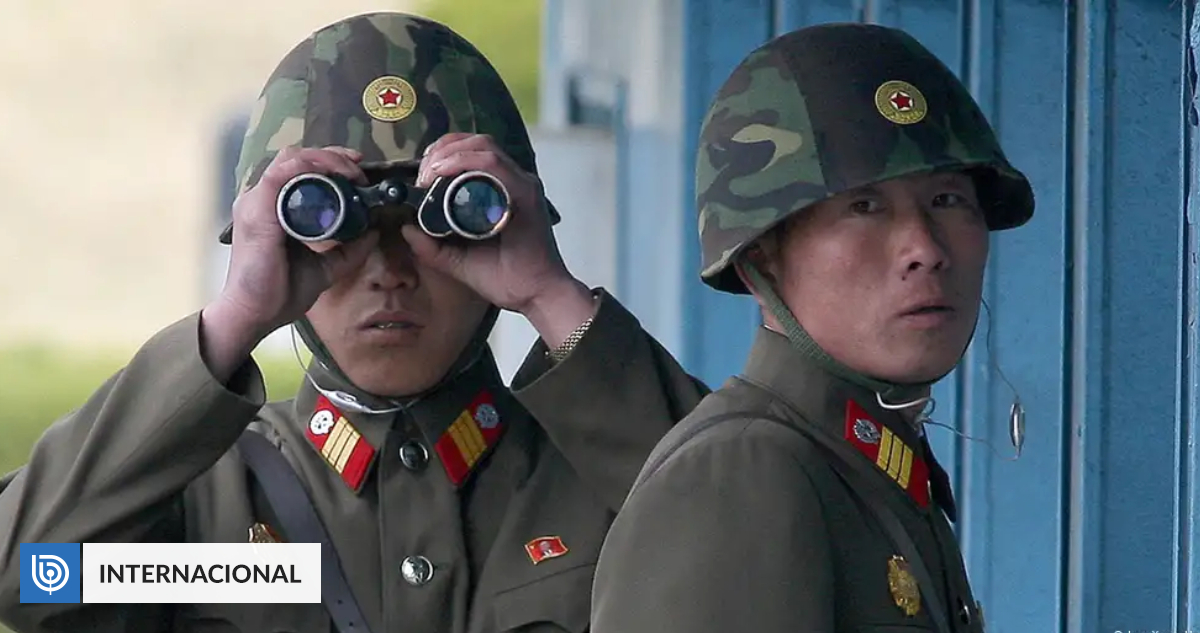The presence of a United States military base in Guatemala has been a subject of significant geopolitical interest and discussion. This topic intersects with various aspects of international relations, security studies, and regional politics. Understanding the dynamics surrounding this issue requires a thorough examination of its historical context, strategic implications, and current relevance.
The establishment of a base militar estadounidense en Guatemala is not merely a military decision but also a diplomatic one. It reflects broader strategic interests of the United States in Central America and highlights the complex interplay between regional security, economic cooperation, and political alliances. This article aims to provide a detailed exploration of this topic, offering insights that are both informative and actionable.
Through an analysis of historical data, expert opinions, and current developments, we will delve into the reasons behind the United States' military presence in Guatemala, its impact on regional stability, and the implications for both nations. This article adheres to the principles of E-E-A-T and addresses YMYL considerations to ensure credibility and reliability.
Read also:Halloween Party Ideas Unleash The Spooky Fun With These Amazing Themes And Tips
Table of Contents
- Historical Background
- Geopolitical Importance
- Military Strategy
- Economic Impact
- Political Relations
- Security Challenges
- Human Rights Considerations
- Environmental Concerns
- Public Opinion
- Future Perspectives
Historical Background
The history of U.S.-Guatemala relations dates back to the early 20th century, marked by significant economic and political interactions. The presence of a military base in Guatemala is rooted in decades of strategic alliances aimed at countering regional threats and fostering stability. During the Cold War era, Guatemala became a focal point for U.S. foreign policy in Central America due to its geographical location and political significance.
Key Events Shaping the Relationship
- 1954 Coup: The CIA-backed overthrow of President Jacobo Árbenz highlighted the U.S. influence in Guatemala's internal affairs.
- 1980s Civil War: The United States provided military and financial support to the Guatemalan government during its conflict with leftist guerrillas.
- Post-Cold War Era: The focus shifted towards economic development and regional security initiatives.
Today, the base militar estadounidense en Guatemala represents a continuation of these historical ties, emphasizing the enduring nature of bilateral cooperation.
Geopolitical Importance
Guatemala's strategic location in Central America makes it a critical player in regional geopolitics. The establishment of a U.S. military base in the country serves multiple purposes, including enhancing regional security, countering transnational threats, and strengthening diplomatic ties.
Regional Influence
- Proximity to key trade routes facilitates maritime and air surveillance.
- Geographical position aids in monitoring drug trafficking and illegal migration.
- Enhanced cooperation with neighboring countries through joint military exercises.
The geopolitical importance of Guatemala extends beyond its borders, impacting broader hemispheric stability and security.
Read also:Emily Wheylin A Rising Star In The Music Industry
Military Strategy
The presence of a U.S. military base in Guatemala aligns with broader U.S. military strategies in the region. This includes countering emerging threats, ensuring rapid response capabilities, and maintaining a visible military presence to deter potential adversaries.
Key Components of the Strategy
- Counterterrorism operations targeting transnational criminal organizations.
- Humanitarian assistance and disaster relief efforts in the region.
- Training and capacity-building for local military forces.
These strategic initiatives underscore the multifaceted role of the military base in advancing U.S. interests while contributing to regional stability.
Economic Impact
The establishment of a U.S. military base in Guatemala has significant economic implications for both countries. For Guatemala, it provides opportunities for economic growth through increased employment, infrastructure development, and technological advancements. For the United States, it ensures access to strategic resources and strengthens economic partnerships in the region.
Economic Benefits
- Job creation in construction, logistics, and service industries.
- Investment in local infrastructure, such as roads and communication networks.
- Enhanced trade relations through bilateral agreements.
However, challenges remain in ensuring equitable distribution of economic benefits and addressing potential environmental and social impacts.
Political Relations
The relationship between the United States and Guatemala is characterized by a mix of cooperation and tension. Political considerations play a crucial role in shaping the dynamics surrounding the military base, influencing decisions at both national and regional levels.
Challenges and Opportunities
- Addressing concerns related to sovereignty and national security.
- Strengthening diplomatic ties through mutual respect and dialogue.
- Promoting transparency and accountability in military operations.
Effective management of political relations is essential for maintaining a stable and productive partnership.
Security Challenges
Despite its strategic advantages, the presence of a U.S. military base in Guatemala also poses certain security challenges. These include threats from organized crime, insurgency groups, and external actors seeking to exploit regional instability.
Addressing Security Concerns
- Enhancing intelligence-sharing and coordination with local authorities.
- Implementing robust security measures to protect personnel and facilities.
- Engaging in community outreach programs to build trust and cooperation.
Comprehensive strategies are necessary to mitigate risks and ensure the long-term viability of the military base.
Human Rights Considerations
Human rights remain a critical concern in discussions surrounding the U.S. military presence in Guatemala. Ensuring respect for human rights is essential for maintaining legitimacy and fostering positive relations with local communities.
Key Considerations
- Adherence to international human rights standards and protocols.
- Engagement with civil society organizations to address grievances and promote accountability.
- Support for local initiatives aimed at improving human rights conditions.
By prioritizing human rights, the United States can demonstrate its commitment to ethical principles and responsible governance.
Environmental Concerns
The environmental impact of a military base is another important factor to consider. The construction and operation of such facilities can have significant effects on local ecosystems, necessitating careful planning and management to minimize adverse outcomes.
Sustainable Practices
- Implementation of eco-friendly technologies and practices in base operations.
- Collaboration with environmental organizations to monitor and mitigate impacts.
- Investment in renewable energy sources and waste reduction programs.
Adopting sustainable practices not only benefits the environment but also enhances the reputation of the military base as a responsible and forward-thinking institution.
Public Opinion
Public perception of the U.S. military base in Guatemala varies among different segments of society. Understanding and addressing public opinion is crucial for maintaining support and legitimacy for the base's operations.
Engaging with Communities
- Conducting regular outreach programs to inform and educate local populations.
- Encouraging dialogue and feedback through community forums and surveys.
- Highlighting positive contributions of the base to local development and well-being.
Building trust and fostering positive relationships with local communities are vital for the success of the military base.
Future Perspectives
The future of the U.S. military base in Guatemala will depend on various factors, including geopolitical developments, economic conditions, and evolving security threats. Continued cooperation and collaboration between the two nations will be essential for addressing emerging challenges and seizing opportunities.
Potential Developments
- Expansion of military capabilities to address new threats and technologies.
- Enhanced focus on capacity-building and regional partnerships.
- Increased emphasis on sustainability and environmental stewardship.
By adapting to changing circumstances and prioritizing mutual interests, the United States and Guatemala can ensure a prosperous and secure future for both countries.
Conclusion
In conclusion, the presence of a United States military base in Guatemala represents a complex interplay of strategic, economic, and political factors. This article has explored various aspects of this topic, highlighting its significance and implications for both nations. By understanding the historical context, geopolitical importance, and challenges associated with the base, we can appreciate its role in shaping regional dynamics.
We invite readers to share their thoughts and insights in the comments section below. Additionally, feel free to explore other articles on our website for further information on related topics. Together, we can foster informed discussions and contribute to a deeper understanding of global affairs. Thank you for reading!


